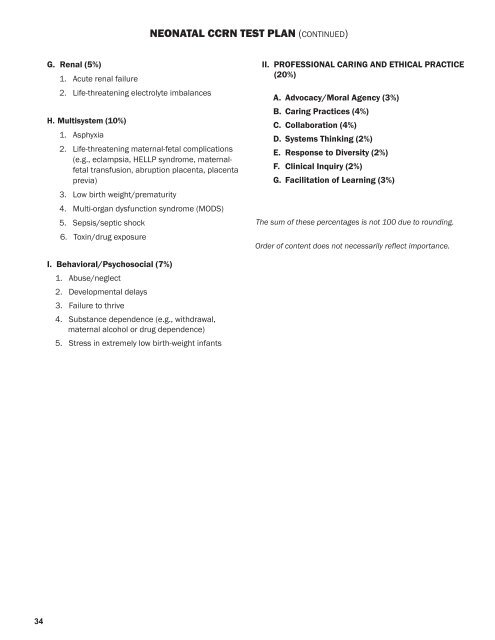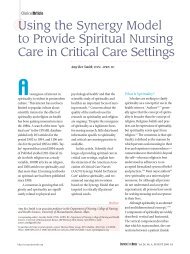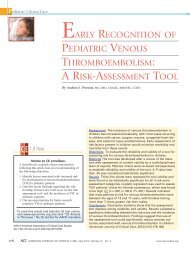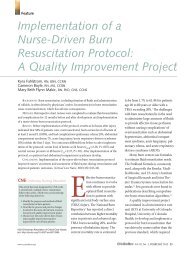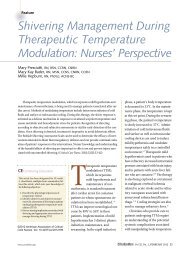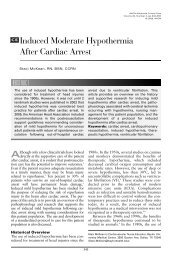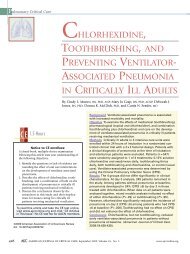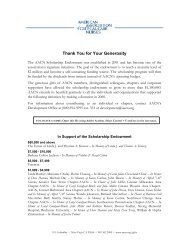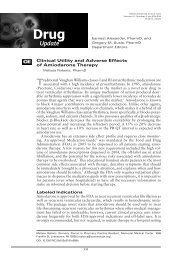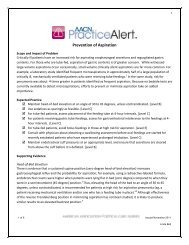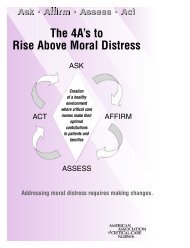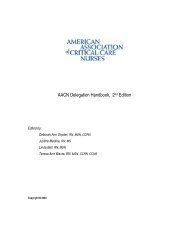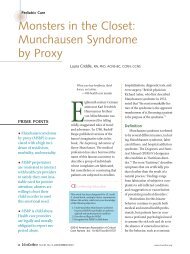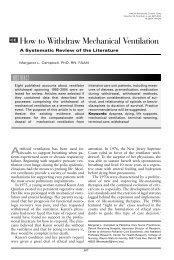CCRN/PCCN Exam Handbook - American Association of Critical ...
CCRN/PCCN Exam Handbook - American Association of Critical ...
CCRN/PCCN Exam Handbook - American Association of Critical ...
Create successful ePaper yourself
Turn your PDF publications into a flip-book with our unique Google optimized e-Paper software.
34<br />
G. Renal (5%)<br />
1. acute renal failure<br />
2. Life-threatening electrolyte imbalances<br />
H. Multisystem (10%)<br />
1. asphyxia<br />
2. Life-threatening maternal-fetal complications<br />
(e.g., eclampsia, HeLLP syndrome, maternalfetal<br />
transfusion, abruption placenta, placenta<br />
previa)<br />
3. Low birth weight/prematurity<br />
4. Multi-organ dysfunction syndrome (MODS)<br />
5. Sepsis/septic shock<br />
6. Toxin/drug exposure<br />
I. Behavioral/Psychosocial (7%)<br />
1. abuse/neglect<br />
2. Developmental delays<br />
3. Failure to thrive<br />
4. Substance dependence (e.g., withdrawal,<br />
maternal alcohol or drug dependence)<br />
5. Stress in extremely low birth-weight infants<br />
neonAtAL CCRn test PLAn (CONTINueD)<br />
II. PROFESSIONAL CARING AND ETHICAL PRACTICE<br />
(20%)<br />
A. Advocacy/Moral Agency (3%)<br />
B. Caring Practices (4%)<br />
C. Collaboration (4%)<br />
D. Systems Thinking (2%)<br />
E. Response to Diversity (2%)<br />
F. Clinical Inquiry (2%)<br />
G. Facilitation <strong>of</strong> Learning (3%)<br />
The sum <strong>of</strong> these percentages is not 100 due to rounding.<br />
Order <strong>of</strong> content does not necessarily reflect importance.


